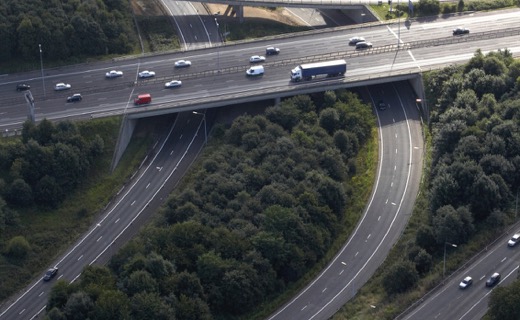The reduction in total carbon emissions from cars necessary to meet the UK’s climate change goals could be achieved without drivers travelling less overall but would require big changes in other areas.
The Climate Change Committee’s Balanced Net Zero Pathway plots a course to net zero that’s compliant with its Sixth Carbon Budget (2033-2037). This requires annual CO2 emissions from cars to fall from about 57 million tonnes in 2021 to around 34 million tonnes by 2030.
This is a reduction of 40%.
Modelling by the RAC Foundation indicates that this reduction might be achieved by many possible scenarios.
However, if the driving patterns of tens of millions of car owners are to go unchanged, then three other key factors will determine whether the required cuts in carbon emissions are likely to be met:
- The take up of plug-in battery-electric cars,
- The proportion of car-driven miles accounted for by these battery-electric vehicles, and,
- The rate of departure of petrol and diesel cars from the UK’s vehicle fleet.
Taking 2019 as the best pre-Covid representative base year, the Foundation ran its model thousands of times using 14 key parameters – including the three listed above – with a range of plausible values derived from existing projections, policy commitments and recent trends.
The modelling – carried out by RAC Foundation staff Doreen Lam and Dr Ivo Wengraf – recognises existing government policies, such as the ban on the sale of new pure petrol and diesel cars from 2030, and the forthcoming Zero Emission Vehicle mandate (which requires a specified percentage of manufacturers’ new car and van sales to be zero emission each year from 2024).
However, it does not allow for any transformational shift in either the affordability of motoring or in public behaviours that might result from fresh policies yet to be announced.



